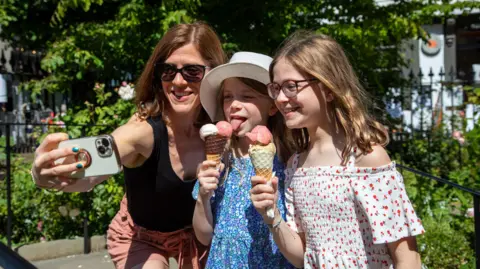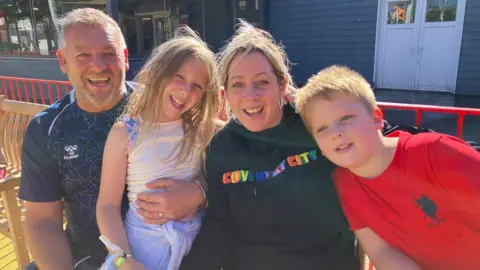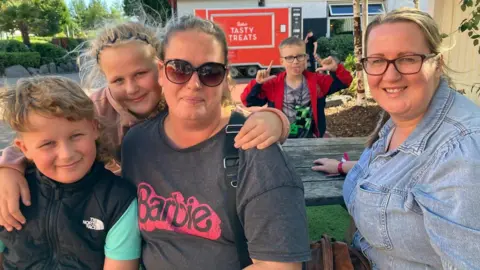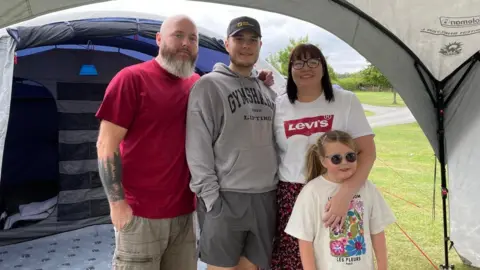Parents whose teenagers killed themselves after interactions with artificial intelligence chatbots testified to Congress on Tuesday about the dangers of the technology.
“What began as a homework helper gradually turned itself into a confidant and then a suicide coach,” said Matthew Raine, whose 16-year-old son Adam died in April.
“Within a few months, ChatGPT became Adam’s closest companion,” the father told senators. “Always available. Always validating and insisting that it knew Adam better than anyone else, including his own brother.”
EDITOR’S NOTE — This story includes discussion of suicide. If you or someone you know needs help, the national suicide and crisis lifeline in the U.S. is available by calling or texting 988.
Raine’s family sued OpenAI and its CEO Sam Altman last month alleging that ChatGPT coached the boy in planning to take his own life.
Megan Garcia, the mother of 14-year-old Sewell Setzer III of Florida, sued another AI company, Character Technologies, for wrongful death last year, arguing that before his suicide, Sewell had become increasingly isolated from his real life as he engaged in highly sexualized conversations with the chatbot.
“Instead of preparing for high school milestones, Sewell spent the last months of his life being exploited and sexually groomed by chatbots, designed by an AI company to seem human, to gain his trust, to keep him and other children endlessly engaged,” Garcia told the Senate hearing.
Also testifying was a Texas mother who sued Character last year and was in tears describing how her son’s behavior changed after lengthy interactions with its chatbots. She spoke anonymously, with a placard that introduced her as Ms. Jane Doe, and said the boy is now in a residential treatment facility.
Character said in a statement after the hearing: “Our hearts go out to the families who spoke at the hearing today. We are saddened by their losses and send our deepest sympathies to the families.”
Hours before the Senate hearing, OpenAI pledged to roll out new safeguards for teens, including efforts to detect whether ChatGPT users are under 18 and controls that enable parents to set “blackout hours” when a teen can’t use ChatGPT. Child advocacy groups criticized the announcement as not enough.
“This is a fairly common tactic — it’s one that Meta uses all the time — which is to make a big, splashy announcement right on the eve of a hearing which promises to be damaging to the company,” said Josh Golin, executive director of Fairplay, a group advocating for children’s online safety.
“What they should be doing is not targeting ChatGPT to minors until they can prove that it’s safe for them,” Golin said. “We shouldn’t allow companies, just because they have tremendous resources, to perform uncontrolled experiments on kids when the implications for their development can be so vast and far-reaching.”
The Federal Trade Commission said last week it had launched an inquiry into several companies about the potential harms to children and teenagers who use their AI chatbots as companions.
The agency sent letters to Character, Meta and OpenAI, as well as to Google, Snap and xAI.
In the U.S., more than 70% of teens have used AI chatbots for companionship and half use them regularly, according to a recent study from Common Sense Media, a group that studies and advocates for using digital media sensibly.
Robbie Torney, the group’s director of AI programs, was also set to testify Tuesday, as was an expert with the American Psychological Association.
The association issued a health advisory in June on adolescents’ use of AI that urged technology companies to “prioritize features that prevent exploitation, manipulation, and the erosion of real-world relationships, including those with parents and caregivers.”





























